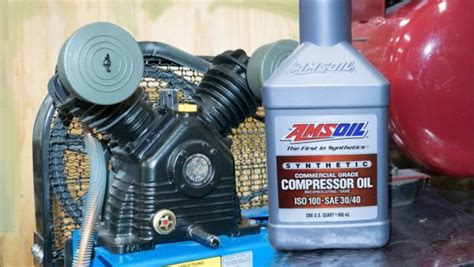How Much Oil To Put In Ac Compressor
Ronan Farrow
Mar 29, 2025 · 3 min read

Table of Contents
How Much Oil to Put in an AC Compressor? A Comprehensive Guide
Adding the correct amount of oil to your AC compressor is crucial for its proper functioning and longevity. Too little oil leads to friction and damage, while too much can cause pressure build-up and system failure. This guide will help you understand how much oil your AC compressor needs and the importance of precision.
Understanding AC Compressor Oil
Before diving into quantities, it's essential to understand the role of oil in an AC compressor. The oil acts as a:
- Lubricant: Reducing friction between moving parts, preventing wear and tear.
- Sealant: Preventing refrigerant leaks by sealing tiny gaps in the system.
- Coolant: Assisting in heat dissipation.
The type of oil used is crucial. Never mix different types of oil, as this can lead to chemical reactions and damage your system. The correct type will be specified in your vehicle's manual or on the compressor itself. Common types include PAG (polyalkylene glycol) and ester oils.
Determining the Correct Oil Amount
Unfortunately, there's no single answer to "how much oil?" The quantity varies greatly depending on:
- Compressor Model: Different compressors have different capacities. The manufacturer's specifications are paramount.
- System Size: Larger systems naturally require more oil.
- Previous Oil Level: If you're topping off, adding too much is just as bad as adding too little.
Finding the Right Information
The most reliable information source is your vehicle's owner's manual. It should specify the type and amount of oil your AC compressor requires. Alternatively, the compressor itself might have markings indicating its oil capacity.
If you can't find the information in these places, consult a professional AC technician. They have the expertise and tools to accurately determine the correct oil level and type for your specific system. Improperly adding oil can lead to expensive repairs.
The Dangers of Incorrect Oil Levels
-
Too Little Oil: This leads to increased friction, excessive heat generation, premature wear, and potential compressor failure. The compressor may seize or be severely damaged, requiring costly replacement.
-
Too Much Oil: Excess oil can cause increased pressure within the system, potentially leading to leaks, component damage, or even system failure. This can also impact the efficiency of the AC system, reducing its cooling capacity.
When to Check Your AC Compressor Oil
Regular maintenance is key. You should check your AC compressor oil only if you suspect a problem, such as:
- Reduced cooling performance: If your AC isn't cooling as effectively as it used to.
- Strange noises: If you hear unusual sounds coming from the AC system.
- Refrigerant leaks: If you notice a loss of refrigerant.
Remember: Checking and adding AC compressor oil is a specialized task. Unless you have the necessary knowledge and tools, it's best to leave it to qualified professionals. Attempting to do this yourself could lead to further damage and added expenses.
This guide provides general information. Always consult your vehicle's manual or a professional AC technician for precise instructions tailored to your specific AC system. Safety and proper functioning of your AC should always be your priority.
Featured Posts
Also read the following articles
| Article Title | Date |
|---|---|
| How Much Does It Cost To Snowbird In Florida | Mar 29, 2025 |
| How Much Does It Cost To Rent A Rollback | Mar 29, 2025 |
| How Much For A Used Golf Cart | Mar 29, 2025 |
| How Much Does Half A Ham Weigh | Mar 29, 2025 |
| How Much Is An O Shot | Mar 29, 2025 |
Latest Posts
-
Pool Pump Broken How To Keep Water Clean
Apr 03, 2025
-
Palworld How To Set Admin Password
Apr 03, 2025
-
P1df3 How To Fix
Apr 03, 2025
-
Mother Half Pipe This Is How I Roll
Apr 03, 2025
-
Mommed Pregnancy Test How Early
Apr 03, 2025
Thank you for visiting our website which covers about How Much Oil To Put In Ac Compressor . We hope the information provided has been useful to you. Feel free to contact us if you have any questions or need further assistance. See you next time and don't miss to bookmark.
